The clock is ticking down to 31 October and the threat of a No Deal Brexit is casting a huge shadow over the food and drink industry.
Here, The Grocer seeks to answer some of the food and drink industry’s biggest questions around what will happen in the event of a no-deal, as well as highlight where there is still a need for much greater clarity from ministers.
We’ve also joined forces with the FDF and the BRC to draw up a list of the key Brexit preparedness issues - for both government and industry - and set out what companies in the food and drink sectors need to do to try to be as ready as they can.
We’ve included links to articles in The Grocer, as well as government and non-government advice for retailers and suppliers. As the countdown continues, we will update the information to provide clarity for readers.
What should businesses be doing to prepare for a no-deal brexit?
On 8 October, the UK government published its no-deal readiness report outlining its preparations for the UK leaving the European Union without a deal.
Despite the Benn Bill, the Government insists the UK will be leaving the EU on 31 October “whatever the circumstances.”
PM Boris Johnson says he is still confident of achieving a deal, although that would require movement from the EU.
Ministers say any deal must involve the abolition of the Northern Ireland backstop and will it accept a time limited backstop as a sufficient concession.
Talks continue on the proposal for the Irish border which has raised hopes that a no deal Brexit could be avoided. Find out what that means for the food and drink industry.
Defra has told the FDF it is “making all necessary preparations” for leaving without a deal.
It has, however, made an “unequivocal guarantee” to the 3.2 million EU nationals now living and working in the UK saying they will have the right to live and remain in the UK. Meanwhile Downing Street has promised up to £100m will be spent on its Get Ready for Brexit campaign which went live last month.
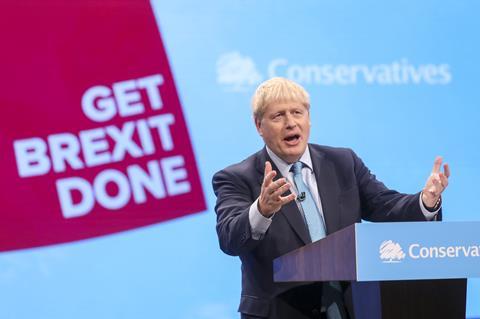
Will there be a full consultation on UK import tariffs before October or will there be an opportunity to make limited changes?
Following “discussions with industry and consumer groups”, an updated tariff regime was published by the Department for International Trade including three specific amendments to proposals first outlined by the government in March.
Amendments include lower tariffs on HGVs entering the UK market, an adjustment to tariffs on bioethanol to retain support for UK producers, and tariffs on clothing products to protect access to the UK for developing countries.
DIT said the tariff schedule would apply for up to 12 months while a full consultation on a permanent approach to tariffs would be launched in January. It meant 88% of total imports to the UK by value would be eligible for tariff free access, with ”lower prices in shops for consumers and the opportunity to source the best goods from around the world.”
Brexit tariffs: which sectors can expect price hikes?
| How do the UK’s temporary tariffs compare to the EU’s WTO tariffs? | ||
| UK tariff | EU WTO tariff | |
| Bananas | 114 EUR/1000kg | 117 EUR/1000 kg |
| Fresh boneless beef | 6.8 + 160.1 EUR/100kg | 12.8 % + 303.4 EUR/100 kg |
| Butter | 60.5 EUR/100kg | 189.6 EUR/100 kg |
| Cheddar | 22.1 EUR/100kg | 167.1 EUR/100 kg |
| Fresh or frozen chicken breasts | 61.8 EUR/100kg | 102.4 EUR/100 kg |
| Frozen legs of lamb | 12.8 + 167.5 EUR/100kg | 12.8 % + 167.5 EUR/100 kg |
| White sugar | 15 EUR/100kg | 41.9 EUR/100 kg |
| Fresh pork loins | 11.4 EUR/100kg | 86.9 EUR/100 kg |
Under the current proposal, tariffs on 87% of the UK’s imports would be slashed to zero. However, they would still apply to 13% of the UK’s imports, including products currently sourced almost entirely tariff-free from the EU – such as beef, pork, and cheddar.
The regime would apply for up to 12 months after a no-deal while a full consultation and review on a permanent approach to tariffs is undertaken, ministers said.
Will the Import Products, Animals, Food & Feed System (IPAFFS) system be ready by October to pre-notify all third country imports including those from the EU?
Defra is advising companies that if the UK leaves the EU without a deal, they will only be able to use an IPAFF it to import from countries that are not in the EEA.
Companies can use IPAFFS for testing and training before the UK leaves the EU, but notifications will not be valid. It has asked companies to give feedback on how it can be improved by emailing APHA
More guidance on this here.
What are Transitional Simplified Procedures (TSP)?
HMRC’s Transitional Simplified Procedures scheme should significantly reduce paperwork and customs delays for businesses importing into the UK.
Once a business has registered for TSP, it will able to transport goods from the EU into the UK without having to make a full customs declaration at the border. It will also be able to postpone paying any import duties. In February, HMRC said TSP would “make importing easier for an initial period of one year, should we leave the EU without a deal, to allow businesses time to prepare for usual import processes”.
The government has previously said that for most goods imported under TSP, traders will be able to delay putting in customs declarations for the first six months after EU exit. FDF has been pushing for confirmation this will still apply.
More information is available here.
Will the Customs Declarations Service (CDS) be ready by October?
HMRC’s new Customs Declaration Service (CDS) is replacing the Customs Handling of Import and Export Freight (CHIEF) system. It is billed as a “modern and flexible” system that can handle anticipated import and export growth.
Its rollout has been dogged by delays, but HMRC says it has now begun phasing in the CDS with a small group of businesses. It plans to move more businesses over from CHIEF to CDS over coming months, as it develops more functionality.
Companies are advised the timing of their move to the new system will depend on how they make declarations and when their software developer or Community System Provider (CSP) updates their systems.
Further information on the switch is available here.
How will tariff-rate quotas (TRQ)s be administered and how will companies access them?
Defra says the current TRQ obligations will not change. So those currently subject to a licence system would continue to be managed in that way.
The new TRQs, as outlined in the temporary tariff schedule, will be managed on a first- come-first-served basis. Defra has promised to provide further guidance on first-come-first-served quotas ahead of exit day.
How will companies know when the TRQ limits have been reached and a higher tarrif applies?
Defra says companies know whether they have a licence for the given period, as this is issued in advance. With FCFS quotas this is not the case, but businesses can access the trade tariff gov.uk page, which is updated on a daily basis.
Will the recognition clause be extended to match the 21-month labelling transition period to allow products made with imported non-fortified flour to be made and sold in the UK?
In the case of no deal, recognition provisions in UK legislation will remain unchanged on day 1 of EU exit, says Defra. But in the longer term it says this is untenable because it contravenes WTO (most favoured nation) rules. Defra promises “no decisions or change” to the Bread & Flour Regulations 1998 will be made until a full public consultation has been undertaken.
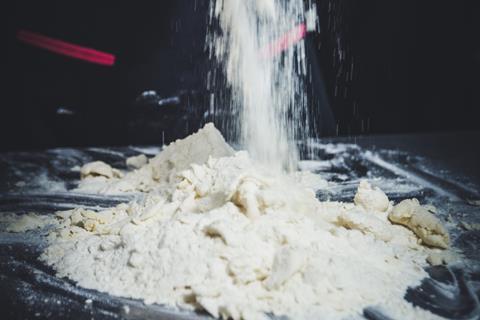
What are the plans for a permanent solution to flour fortification issues?
A bespoke amendment to the Bread & Flour Regulations’ recognition provision was discussed with the food industry in 2018 . Defra claims it realises the importance of UK manufacturer’s access to unfortified flour in terms of export to the EU markets. While removing the recognition provision, the amendment discussed with industry would provide a “specific exemption” to allow the domestic milling and import of unfortified flour to the UK - provided the flour or final, flour-containing product is destined for export.
Are any changes required to identification/health marks on products of animal origin (POAO) imported from EU into the UK?
There will be no change required to health and identification marks carried on relevant products that are imported into the UK from the EU or a third country.
Where will the new Border Inspection Ports (BIPs) be and what level of authorisation will they have?
There is a full list of UK BIPs, with details of approved categories, on the UK government website. The European Commission has also published a list of contact details for BIPs in each EU member state, again with details of approved categories for each.
Will the EC provide an equivalent transition period for labelling changes for products placed on the EU market?
What happens to food labelling if there’s a no deal Brexit?
Businesses will have a 21-month transition period to make labelling changes on goods produced and sold in the UK. These include switching to the new UK health and identification marks and ensuring there is a UK address for the responsible FBO.
However, the European Commission has stated that food placed on the EU27 market will have to comply with EU food labelling rules from the withdrawal date. So exporters will have to replace any reference to ‘EU’ origin with ‘UK’, ensure there is a European address for the FBO or EU importer on the label, and switch to the new UK health and identification mark from exit day.
Products placed on the EU market before exit day can continue to be sold without labelling changes.
When will UK organic certification bodies receive EC approval to allow continued UK organic exports to the EU?
In the event of a no-deal Brexit, businesses will only be able to export organic food & drink products to the EU if certified by an organic control body that is approved by the EU Commission (EC1235 status).
UK organic certifiers such as the Soil Association have prepared to apply for EC1235 status. However, their application cannot be made to the EC until the UK exits the EU. So there is likely to be a gap between the UK exit and EC approval, during which time UK organic product will not be able to enter the EU.
How long that delay could be is still unclear.
How will the movement of limited shelf life products be prioritised?
In the event of a no-deal, the government only says it will prioritise movement of ‘category 1 goods’, which are deemed critical to preservation of human or animal welfare and/or national security.
Government-secured freight capacity will be used to minimise disruption to imports of some of these goods including: Human medicines, medical devices, vaccines, infant milk formula, biological materials such as bloods, organs, tissues and cells, veterinary medicines and active pharmaceutical ingredients.
‘Critical food chain dependencies’ - such as chemicals and key additives - are also classified as category 1 goods, but they will not be given access to government-secured freight capacity at this stage.
No other food products are classed as ‘Category 1’.
What will be process be for submitting catch certificates for importing fish products?
If you import fish to the UK from the EU you’ll need a catch certificate. These are issued by the country where the fishing vessel is registered (the flag state) and should contain information about when the fishing took place, where the fishing took place and how much fish was caught, Defra says.
If the fish you’re importing to the UK has been stored you’ll also need a storage document from the exporter. If it’s been processed you’ll need a processing statement from the exporter. This must be filled in by the processor and endorsed by the authority in the country of processing.
These documents will be checked by UK port health authorities (fisheries authorities in Northern Ireland).
However, you will not need a health certificate for imports of fish or fish products from the EU for at least 6 months after Brexit.
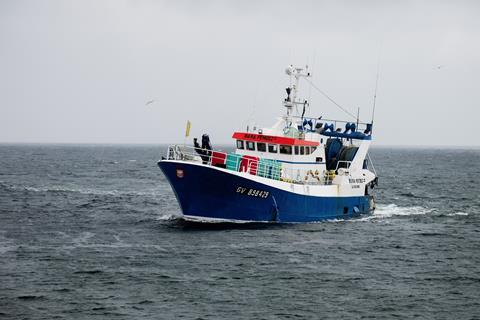
Will the UK be classed as a Category A country under Regulation 605/2010 for exports to the EU of raw milk, dairy products, colostrum and colostrum-based products?
In order to export live animals and animal products to the EU, the UK must be granted third country status by the EU ahead of Brexit.
Under EU Regulation 605/2010, only third countries with ‘category A’ status can export raw milk and dairy products to the EU. Exports of raw milk and dairy from category B and category C must undergo further treatment such as pasteurisation and sterilisation.
The EU’s Standing Committee on Plants, Animals, Food and Feed (SCoPAFF) approved the UK’s application for third country listed status for a potential no-deal brexit in April.
However, that approval has now expired, meaning the UK will have to apply to SCoPAFF again across the various commodities in order to cater for a no-deal scenario on 31 October.
That hasn’t happened yet, despite the process taking as long as six months to secure. And while Defra says it is “confident” the UK will be granted third country listed status again if its disease status remains the same, it admits this is “not guaranteed”.
UK meat supply could ‘grind to a halt’ if EU byproduct access lost
When will the UK application for third country equivalence for certification of seed potatoes and ware potatoes be approved?
The seed sector makes up around 11% of potato production in Great Britain, and we typically export 16-17% of our total GB seed crop each year. A quarter of these exports go to the EU [AHDB].
In the event of a no-deal, the UK would be unable to export seed potatoes to the EU until the UK is granted third country equivalency.
Defra says the European Commission is refusing to progress the UK’s application for third country equivalency until negotiations are complete.
“The application will be resubmitted before 31 October however the decision sits entirely with the Commission, so we cannot say when the application may be progressed”, it adds.
Will composite POAO that are exported from the UK to the EU or a third country that meet the derogation criteria in Commission Decision 2007/275/EC be exempt from veterinary checks?
Under EU rules, imports of some composite food products containing only a limited percentage of products of animal origin are exempt from veterinary checks.
This doesn’t include any processed meat or fish products, but can include things like fish sauce, bouillon or tinned coffee drinks, as long as they meet certain conditions.
According to Defra, this derogation will be made available to the UK as a third country after Brexit.
Unanswered questions: 11 issues government has yet to explain
• What are the impacts for ongoing negotiations at the WTO regarding the UK’s WTO schedules?
• How will government ensure the speed of the flow of trade continues for both imports and exports?
• Will arrivals of ingredients/packaging for just-in-time food and drink production be prioritised?
• When the UK becomes a ‘third country’ to the EU, what will the UK call already existing ‘third countries’ in contracts and legislation post-exit?
• What checks and inspections will goods moving from Ireland to Northern Ireland, and vice-versa, face?
• How will government mitigate disruption at Irish Sea ferry ports?
• What will happen to the AEO status of UK companies?
• What will happen to limited shelf-life products that can no longer be exported?
• What will happen to EU FTAs that are not rolled over?
• How will companies importing products containing products of animal origin from the EU for co-packing in the UK, obtain a health certificate to re-export these products?
• What plans are being made to mitigate the impact of VAT and tariff costs?
For more information see the FDF Brexit hub page







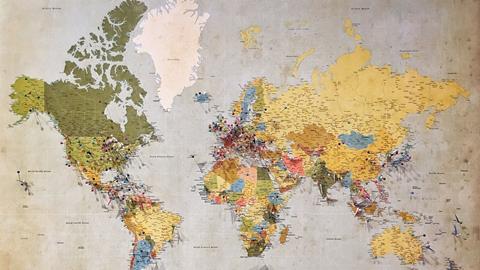
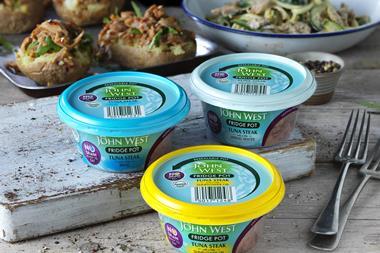
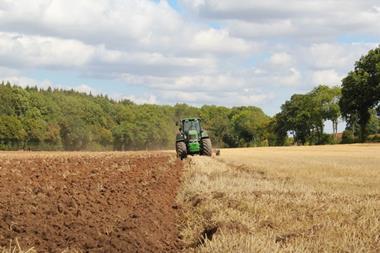










No comments yet